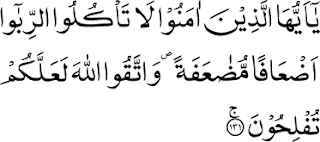Out of many forms
of revelation which God has disclosed to me, one is that when God desires to
disclose some hidden matter to His servant, He causes to flow from his tongue
some phrases in a slight slumber, sometimes gently and sometimes harshly.
Those
phrases that flow harshly from the tongue fall upon the tongue as hardly as
hails falls suddenly upon a hard piece of ground, or as the hooves of a fast
running steed strike the earth.
Such a revelation arrives with speed and is so
awe-inspiring that the whole body is affected thereby and the tongue runs with
it so fast and in such a majestic voice as if it is not one’s own tongue. The
slight slumber disappears altogether when the revelation is completed and
during the time it is received one lies motionless like a corpse.
 The second type
of revelation, which on account of its many wonders I call perfect revelation,
is that when God Almighty desires to inform a servant of a hidden matter after
his supplication or on His own, He imposes a faintness upon him, whereby he
becomes completely lost to himself and sinks in that faintness like a person
who dives in deep water and disappears in it; then when he emerges from this
diving he feels a sort of echo inside himself, and when that echo ceases he
feels from inside himself words that are appropriate and fine and delicious. This
diving in the faintness is a wonderful experience which cannot be adequately
described in words. In this condition a whole ocean of understanding is opened
for a person.
The second type
of revelation, which on account of its many wonders I call perfect revelation,
is that when God Almighty desires to inform a servant of a hidden matter after
his supplication or on His own, He imposes a faintness upon him, whereby he
becomes completely lost to himself and sinks in that faintness like a person
who dives in deep water and disappears in it; then when he emerges from this
diving he feels a sort of echo inside himself, and when that echo ceases he
feels from inside himself words that are appropriate and fine and delicious. This
diving in the faintness is a wonderful experience which cannot be adequately
described in words. In this condition a whole ocean of understanding is opened
for a person.
The third form of
revelation is communicated to one’s heart in a gentle manner. A phrase passes
through the heart which does not comprehend all the wonders in perfection that are
a characteristic of the revelation that we have just described. It is not
necessarily preceded by any faintness or slumber. It can be received in
complete wakefulness. It is felt as if someone has breathed those words into
the heart or has thrown them at the heart. One might be partially awake or
might be completely awake and one suddenly feels that new words have entered
one’s breast. Sometimes, immediately on entering the heart, the words manifest
their forceful light and one becomes aware that these words are being conveyed
by God.



































